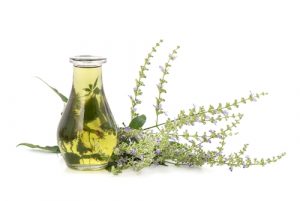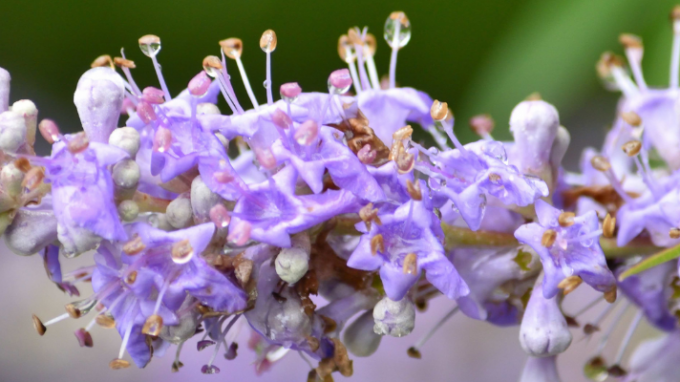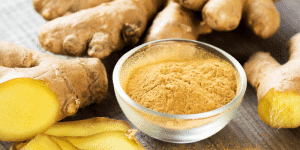If you’re trying to get pregnant, but looking for the herbal or holistic approach to improving your fertility, there’s no shortage of natural remedies that couples swear by. Among the many natural options is the plant, Vitex.
Though it’s short name may sound like an over-the-counter drug, Vitex, formally referred to as Vitex agnus-castus, or more commonly known as chaste tree or chasteberry, is a plant that is native to the Mediterranean region and has been used for centuries to treat various health concerns. In particular, this herb is believed to help improve fertility by balancing hormone levels and regulating menstrual disorders, easing PMS symptoms and promoting ovulation.
Among the many medicinal elements found in this plant are essential oils, secondary metabolites known as iridoids and diterpenoids, and flavonoids.
Vitex for Fertility
While the exact effect of vitex on fertility is not fully understood, it is believed that the active ingredients within the plant’s berries interact with the body’s pituitary gland. This gland in the brain controls many essential functions in the body, including hormone production, and vitex is believed to influence prolactin and dopamine production, which can interfere with ovulation and fertility. By interacting with this gland and ultimately aiding in hormone release and production processes, hormonal balance may be achieved and women’s menstrual cycle may become regulated, promoting regular ovulation and improving the chance to conceive.

Additional Benefits of Vitex
One of the most famous attributes of this plant and most common uses is found in its ability to ease symptoms of PMS. Many women report that vitex helps in relieving cramps, bloating, and mood swings, as well as menstrual-related breast pain, fatigue, and headache.
In some cases, vitex has been recommended for women who are breastfeeding and have an oversupply of breastmilk, as this herbal option in greater doses was considered an aid in possible lactation suppression. However, in an open study, results found that mothers who received a lower dose of vitex had a greater milk production supply than those using other herbs or none at all.
While in general, vitex is not recommended during pregnancy due to the increased risk ovarian hyperstimulation and miscarriage. In some cases, it is used by midwives and herbalists to prevent miscarriage in women dealing with low progesterone, as boosting progesterone levels is important for maintaining a healthy pregnancy.
Similar to the overall effects on fertility, for women who have been taking hormonal birth control pills, taking vitex can help to re-establish natural menstrual cycles at a quicker rate as a result of hormonal balancing effects.
Consumption Specifications
When it comes to taking vitex, the herbal remedy is considered safe for most people. However, there can be some potential side effects, the most common of which is gastrointestinal upset and changes in menstrual patterns. Like any treatment, if any adverse effects are experienced while taking it, use should be discontinued and a doctor or specialist should be consulted with.
Vitex is a natural herbal ingredient that can be taken in supplement form alone or paired with other ingredients. There is no set dosage for herb and recommended dose varies depending on the individual and the condition being treated, however it is generally recommended to begin taking vitex with a low dosage and increase gradually as needed or to consult with a doctor or naturopath prior to starting. In most cases, women will need to continue taking vitex for several months before experiencing any noticeable results.
Like many herbal remedies, the fertility impact of vitex relies on the underlying cause for specific fertility issues. For menstrual disorders, irregular cycles, luteal phase defect and possibly cases of PCOS that impact ovulation frequency, vitex may be a good option for successfully regulating the menstrual cycle and improving fertility in cases requiring hormonal balance.




